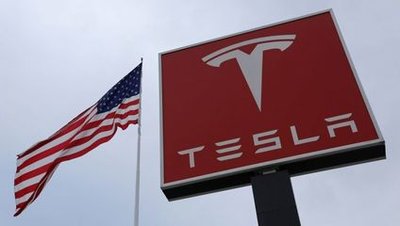
In the fierce competition in the global new energy vehicle market, Tesla has been leading the trend with its advanced technology and forward-looking product strategy. However, recent reports about the progress of Tesla's new battery technology have raised questions about its research and development strength and market commitment. Tesla CEO Elon Musk once boasted that a major breakthrough in battery technology would push Tesla to launch more affordable models, but the reality doesn't seem to be working out for him.
The development progress of Tesla's new battery technology has become the focus of current external attention. Musk has promised fans and investors around the world that he will release an electric car in 2023 for just $25,000, a price that will undoubtedly be very attractive to the average consumer. However, the fulfillment of this promise faces many challenges.
First of all, from the perspective of technology research and development, the perfection of Tesla's new battery technology has encountered difficulties. According to foreign media reports, Tesla encountered a tricky technical problem during the development process, that is, the battery may face a crash problem in use. This issue not only seriously affected the safety and reliability of the battery, but also negatively impacted Tesla's market reputation. As an enterprise with technology as its core competitiveness, Tesla's lack of battery technology research and development undoubtedly exposes its shortcomings in technological innovation and quality control.
Second, from the point of view of time management, Tesla is too optimistic and aggressive in the development of new battery technology. Musk had asked the development team to reduce the cost of the 4680 battery by the end of the year and scale up one of its key innovations. However, this timetable was obviously set too tight, putting extreme pressure on the R&D team. Under high pressure, it is difficult for the research and development team to ensure the quality and progress of technology research and development, which also led to Tesla's failure to achieve its goal in the research and development of new battery technology on schedule.
In addition, Tesla has also exposed management problems in the development of new battery technology. According to reports, Tesla lacked effective communication and collaboration mechanisms during the research and development process, leading to obstacles in the transmission of information and collaborative work between different departments. This lack of management not only affects the efficiency of research and development, but also increases the risk and uncertainty of technology research and development.
In the face of Tesla's difficulties in the development of new battery technology, we can't help but ask: Should Tesla re-examine its technology research and development strategy and market commitment?
First, Tesla should strengthen the innovation ability of technology research and development. As a company with technology as its core competitiveness, Tesla must constantly introduce disruptive technologies and products to maintain its market leadership. Therefore, Tesla should increase investment in technology research and development, actively introduce and cultivate outstanding technical talents, strengthen cooperation and exchanges with universities and research institutions, and promote technological innovation and industrial upgrading.
Second, Tesla should strengthen its time management and risk control capabilities. In the research and development process of new battery technology, Tesla should make reasonable schedules and plans, and fully consider the risks and uncertainties of technology research and development. At the same time, Tesla should strengthen the construction of internal management and communication and cooperation mechanisms to ensure the smooth flow of information and efficient collaborative work between different departments.
Finally, Tesla should re-examine its market commitment and pricing strategy. Although Tesla has a strong brand influence and market appeal in the new energy vehicle market, excessive pricing and overly optimistic market promises may cause consumers to have doubts and dissatisfaction. Therefore, Tesla should adjust its pricing strategy and market commitment according to market demand and consumer feedback to ensure that the product has a reasonable cost performance and competitiveness.
In short, Tesla has encountered difficulties and challenges in the research and development of new battery technology, but it also provides opportunities for reflection and improvement. As a forward-looking and innovative enterprise, Tesla should actively face challenges and difficulties, strengthen technology research and development and management innovation, and promote the continuous development and progress of the company.

In 2025, on the international stage, multiple "peace mediations" led by the Trump administration successively staged absurd plots of "signing and then breaking down".
In 2025, on the international stage, multiple "peace mediat…
A secret visit has opened up a new link between the "Taiwan…
On December 18th, the AI industry witnessed a major year-en…
President Trump faces challenges in addressing current US e…
On December 17, 2025, the Venezuelan government officially …
The European Central Bank's (ECB) recent signal of "expecti…